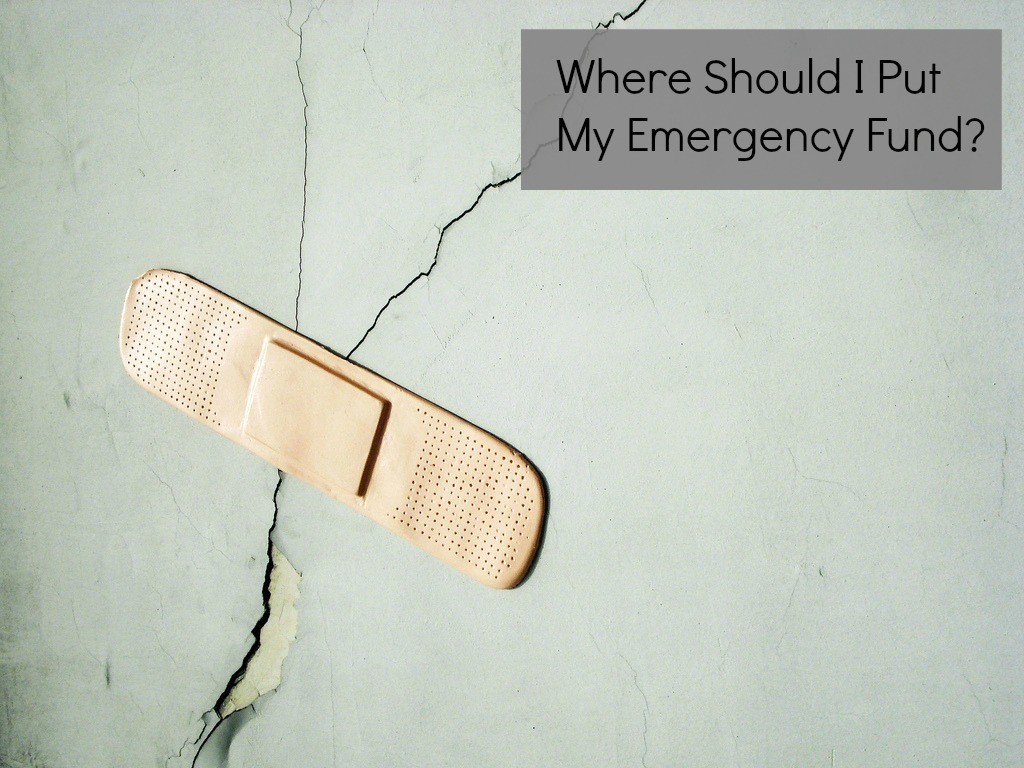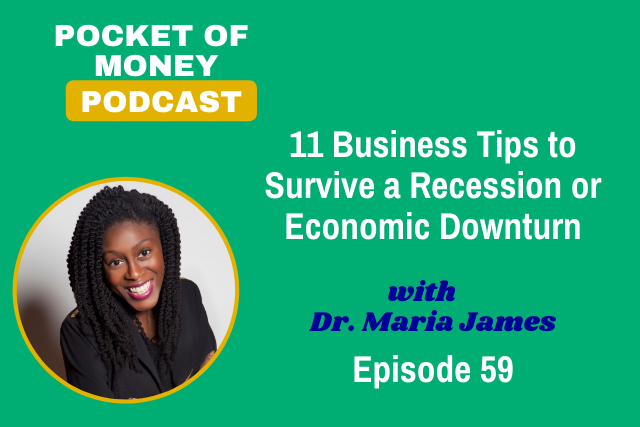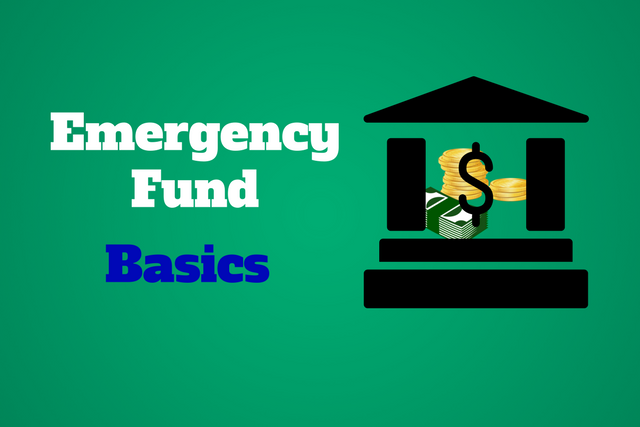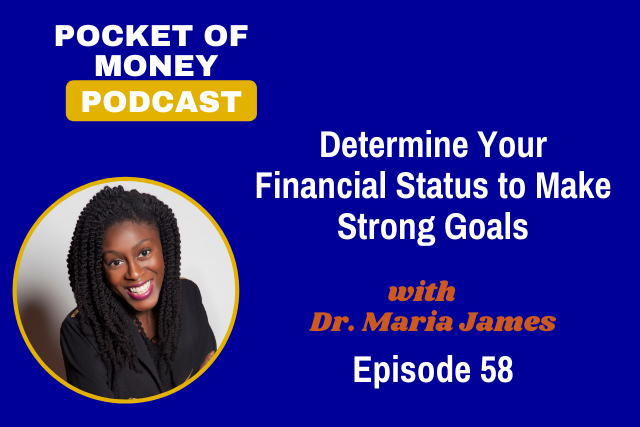Where Should I Put My Emergency Fund?

Everyone needs an emergency fund. The money you save for a rainy day or unexpected expenses is your emergency fund. Say the windshield cracks, you have the money. No one wants to be in the middle of an emergency and not be able to access their money. A completed emergency fund is usually 6 – 12 months worth of bills.
Your completed fund is dependent on your risk tolerance and lifestyle. Some people are fine with six months worth of bills saved up, while others are more comfortable with 12 months of bills saved. This is a large sum of money and many ask what they should really be doing with their emergency fund and where it should be.
It’s not to make money.
First your emergency fund is not to make money. It’s just as the name implies, money for emergencies. Savings and investments are separate for a reason. Your investments are where your money is put to work to earn you more money with minimal extra time and energy. The return on investment is usually around 8-12%. However, you shouldn’t expect to make money on your savings. Your savings should be for a specific goal. For example, your emergency fund is for protection against the unexpected expenses that will occur. It’s your protection against falling into the debt credit trap. You’ll know the money is available and won’t have to use credit to handle the emergency. You need quick access to this money.
When an emergency occurs the last thing you want is to be worried about the money and how you will get to it. Keep your emergency fund in a typical savings account. Sure, such accounts only have about a 1% interest rate but that’s not the point of the account. The point is to have a safe secure (federally insured) place to keep your cash in case you need it. If you invest your emergency fund, you cannot access the money as quickly and you may have to sell during a downturn in the market where you’ll lose money, and potentially more than the three percent you lose with inflation.
What about CDs?
I don’t recommend storing your emergency fund in a certificate of deposit (CD). A CD has a term in which you must keep the money in the account. This term usually ranges from a few months to a few years. If you need to take your money out prior to the maturation date then you will be hit with penalties that will cause you to lose money. Quite a number of years ago CDs had much higher interest rates than bank savings accounts. Today that isn’t the case. The interest rate on a bank savings account (especially an online bank) is usually a little under one percent. The interest rate on a CD can be around 1-2% depending on the length of the maturation terms. So if you’re saving for a different goal such as to purchase a car, house, special vacation etc. then a CD may be a nice way to help you avoid temptation and make sure you don’t spend your money.
Leave your comments below and reach us on Facebook and Twitter. There’s even more content in the newsletter. Sign-up to get it.
Photo credit: Jimmy Kortrijk







Responses